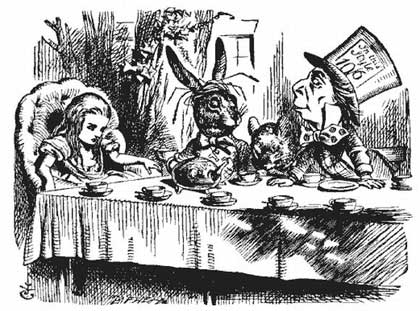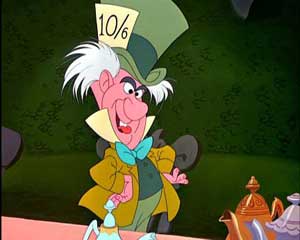[Bianculli here: We here at TV WORTH WATCHING are gearing up for the fall TV season, and wrestling with a site relaunch that may or may not be done in time. Meanwhile, asked to start perusing the new fall fare in advance, one of our contributing critics had an identity-crisis epiphany...]

Going Back Into Combat After a 24-Year Absence
Though it's an event that lost its drum-roll status a long time ago, a new television season is about to happen. The gates will open, the stuff will spill out and fans of worthwhile programs will look for guidance in what among the new is worth watching, and what should be avoided. Again this year, TV WORTH WATCHING will offer its insights on the subject through the eyes of its contributors.
Be warned: This contributor will go about this in a different, decidedly unprofessional way.
You are viewers, very discriminating viewers. Read the comments to TVWW's blogs, and that is immensely clear.
The writers of the blogs you read, and sometimes comment upon, are long-time, very credentialed critics.
I am more you than I am us.

Even though that statement sounds like it was stolen from a Lewis Carroll story, it means the other people who write here have been critiquing television, pretty much non-stop, for decades. I, on the other hand, stopped being paid to be a critic decades ago. Even when I was being paid, my talents were loaded on the reporting side of broadcasting, rather than on the side that awards stars for excellence.
I advised readers to think of me as a consumer reporter who told them what business decisions drove the people who were selling them programming. Networks, I said, bundle viewers for advertisers. They usually care little about the quality of what's being shown; they care much more about how it will act as a snare to trap viewers. The more they catch, the more money they make.
In the time that has passed since I was last paid to criticize, I became more like you. I am a viewer who is very selective about what television merits the investment of my time. For the best advice, I followed the wisdom of Bianculli at the newspaper and then on this site, just as you are -- until I got my Schraft's moment and he, with whom I collaborated on several stories in the '80s, offered an invitation to write again.
But that did not make me a critic the likes of my teammates. I long ago lost the feeling of obligation to watch an entire program before making up my Viewer Mind. That "civilian" philosophy told me a program had a limited chance to catch my attention and imagination. If this didn't happen within 10 minutes of a 30-minute show, I would stop watching.
Hour-long dramas had an even harder time of it. Not only did they have to give me a reason to watch beyond 20 minutes, but they had to give me a reason to return for weekly doses. And that's the tougher criterion. Historically, high-quality TV dramas are born on life support, and networks appear way too anxious to pull the plug.
I have been burned, as a TV consumer, too often by this. Comedies make your mind relax; if they go away, it's a shame, but you learn to chill another way. But good dramas make you subscribe. You buy into the acting, writing -- the whole package. It's a commitment.
Then some marketing-research apprentice at the networks decides to put it on hiatus. Or switch its schedule spot. Or kick the good product in the ass with gimmicks until it loses all the charm it had and, instead, takes on the appearance of something only Aaron Spelling could have loved.
Now, as a columnist for TV WORTH WATCHING, I'm a hybrid. I will not subject myself to a full hour if there is so much slop up front that a full 60 minutes could be harmful to my health. In such cases (and there are some deadly examples on the new schedule), I'll just recuse myself from the deliberations and let Bianculli and the others review -- they have, over time, built up an immunity to TV's toxins. I'll weigh in on a show only when I've watched the whole thing.
And I have seen most of the new shows, in total. The ones I like may or may not maintain that level of excellence, and among the many losers, a metamorphosis into high quality could happen, but I don't bet on it. But please count on the fact that whatever I DO offer an opinion on will be judged fairly, with my Viewer Mind completely disengaged.
-

Tom Brinkmoeller doesn't miss critic-type encounters with network types. Quoting Lewis Carroll (for real): "'But I don't want to go among mad people,' said Alice.'Oh, you can't help that,' said the cat. 'We're all mad here.'" Tom thinks the view from a La-Z-Boy is more relaxed, and probably more sane.